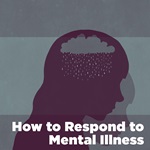Sitting in my office on a brutally hot afternoon in Florida, I was having a difficult conversation with one of my most capable small-group leaders. She shared with me that the stress of her schedule was causing depressive symptoms in her life. Having a history of depression, she understood her triggers. Consequently, she knew she needed to step away from her small-group responsibilities so she could rest and regain a more manageable schedule. Serving in a local church, working full-time, and caring for a family is stressful for anyone, but when you have a mental health challenge, you're particularly vulnerable to stressors.
I'm blessed to serve at Bayside Community Church. We're a multi-site church with thousands in attendance and over 300 groups. As the Pastor of Small Groups at the East Bradenton campus, I'm charged with training the small-group leaders of our 90 groups and starting new groups. But my primary responsibility is pastoring those groups and shepherding the leaders—including walking with group leaders who are struggling with mental health.
Mental health disorders affect tens of millions of Americans each year. Because they're so common, it makes sense that we have leaders who are affected. As a former mental health counselor, I'm an advocate for eliminating the stigma and stereotypes of mental health issues that are common in the church. Sadly, the suicide of Pastor Rick Warren's son, Matthew, who suffered with depression, has caused churches to discuss how to help members who struggle with mental health issues. We still have a long way to go.
How should we help leaders who are struggling? I must confess that it's a difficult question to answer. Few churches have clear-cut protocols or standard operating procedures for dealing with mental health situations. But I'm thankful that more churches are beginning to take the issue seriously, putting strategies into place. I'd like to offer some suggestions to help you minister to leaders who are suffering. It's an issue close to my heart, because I suffer myself.
Start with Prevention
One of the most powerful things we can do to help is prevent triggers in the first place. This involves promoting healthy leadership from the very beginning, avoiding the common triggers of stress, isolation, and overwhelming responsibilities.
The first aspect of healthy leadership is simply letting leaders know we love and support them. We must communicate that our leaders are valued beyond what they do for our ministries. They need to know that we care more about them as people than the role they play in what we're trying to accomplish. John 13:34 encourages Christ-followers to love one another—our relationships should always trump tasks.
By establishing healthy supportive relationships with the small-group leaders in our care, we set a foundation that helps people feel safe, affirmed, and more apt to share when life is overwhelming or stressful. Then when leaders share they're struggling, we can help them navigate a plan for healthy resolution. Often, mental health issues such as mood disorders, anxiety-based disorders, or addictions manifest when our lives are out of balance—that's when people feel overwhelmed and stressed. Helping leaders maintain healthy balance in their lives is vital.
The second aspect of promoting healthy leadership is supporting healthy priorities. We do our best to make sure our leaders put their relationship with God is first, then their family relationships, and then their role in small-group ministry. This helps leaders maintain emotional health—whether or not they're prone to mental health issues. Maintaining margin in our lives through prioritizing is important for self-care, especially when life is stressful.
The third aspect is encouraging leaders to unplug and take breaks. We do our small groups in semesters so our leaders get a break between sessions. Pastors, including me, model this as well. As I'm writing this, I'm on a three-day spiritual retreat. Bayside understands the importance of needing to unplug and relax, so twice a year each pastor spends time on a spiritual retreat.
Provide Resources
Even with our best prevention efforts, though, some of our leaders will face mental health issues. It's important to provide helpful resources and support when a leader is struggling. One way we resource our leaders is by providing a coach for each small-group leader. A coach shepherds three to five small-group leaders.
We want every small-group leader to be cared for, known, prayed for, supported, and encouraged by a coach. Coaches provide a lot of the preventative care, but also are empathetic when leaders are struggling, providing them with resources to help, and asking them what they need. So, if issues arise such as a marital struggle, depression, grief issues, or parenting issues, the coach is there to talk and work out a plan.
Part of that plan may be counseling. At Bayside, we provide counseling services to all of our leaders through a ministry we call Care. Care provides pastoral counseling as well as profession therapeutic services. We also pay for off-site therapy when leaders need this kind of support. We recognize that sometimes it's better to go elsewhere to protect confidentiality.
Recently, one of my direct reports was feeling overwhelmed with work, family, and ministry responsibilities. Because we have a great relationship, she was able to talk freely about this with me. We developed a plan for her to step away and take a break. I communicated that we cared more about her as a person than as a leader, and we wanted her to spend time getting better.
When a leader shares they have a mental health issue, I often share about my own challenge with dysthymia, a chronic form of depression. By letting leaders know that I struggle, too, they know I empathize with their situation. Transparency and authenticity go a long way in helping to build healthy relationships. By sharing my story, I also communicate that mental health issues don't disqualify them from leadership. My hope is that by sharing my struggle, I can help to remove the stigma of mental health issues in the church.
Three Tips to Help
With one in four adults suffering with mental health issues, it's likely that at least a few of your leaders are struggling. Here are three tips to help:
1. Affirm their value. Remind leaders that who they are is more valuable that what they do for the ministry. Offer a listening ear, prayer support, and encouragement. Take the stigma out of needing help. Let them know it's common and that it doesn't automatically disqualify them from ministry.
2. Work together on a plan. Help them evaluate their schedule. Stress is a trigger for many mental health issues, so taking a break to create margin for rest and rejuvenation can be important. Help them consider if their mental health or overall well-being are at risk. Be sure to have a list of mental health resources that you can refer to, including trusted counselors and psychiatrists. Then continue to walk with the leader through the process.
3. Don't be afraid to ask. If you've developed a relationship with your leader, and you notice something seems off, ask about it. Make an observation like, "It seems like you've been sad lately. How are you feeling?" You could also say, "I've noticed you're not quite yourself lately. I'm always here to listen if you need someone to talk with." Make sure that you communicate that you want to help the leader be healthy and flourish, being all God intends. These kinds of statements show our leaders that we love them. Your invitation could be the thing your leaders need to open up about their struggles.
—Julia Mateer is Director of Small Groups for the East Bradenton Campus of Bayside Community Church in Florida.











